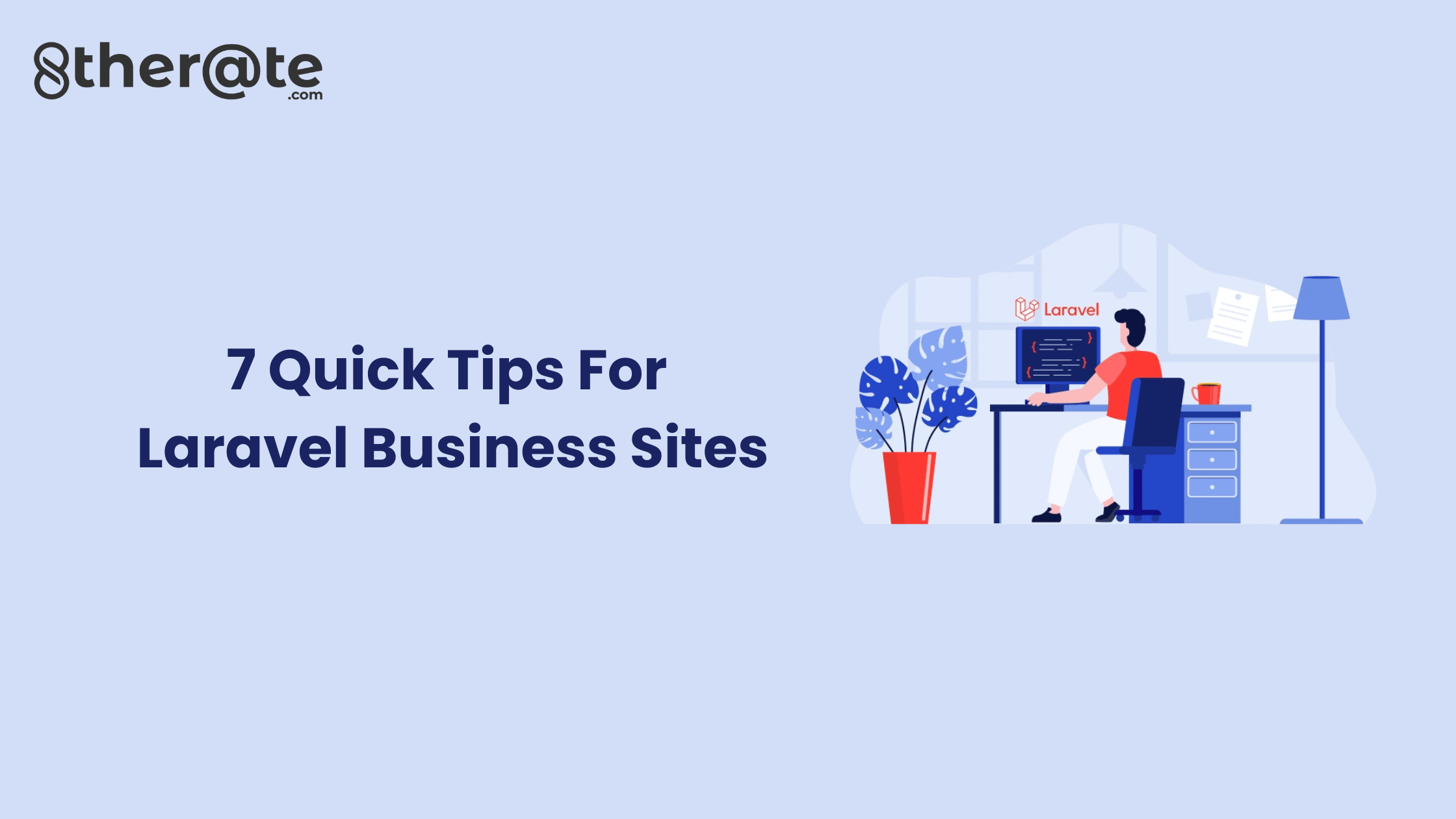
best laravel development company
Laravel
Laravel is one of the most popular PHP frameworks, used by many businesses worldwide. It’s an open-source web application framework that is simple, elegant, and user-friendly. best laravel development company Laravel provides a solid foundation for developing business sites with its robust architecture, routing, and templating systems. In this blog, we’ll be discussing seven quick tips for Laravel business sites to enhance their performance and user experience.
Optimize Database Queries
One of the critical factors in a website’s performance is database queries. If your Laravel business site is taking too much time to load, it could be due to slow database queries. To optimize your database queries, you can use Laravel’s built-in query builder or Eloquent ORM.
laravel development company You can also use tools like Laravel Debugbar or Laravel Telescope to monitor the performance of your queries and improve them accordingly.
Use Caching
Caching is another way to improve your Laravel business site’s performance. By caching frequently accessed data, you can reduce the number of database queries and speed up your site’s load time.
custom laravel development Laravel provides built-in caching support, and you can also use third-party packages like Redis or Memcached to improve your site’s caching performance.
Implement Authentication and Authorization
Laravel comes with a built-in authentication system that makes it easy to add user registration, login, and password reset functionality to your business site. The authentication system includes features such as two-factor authentication, email verification, and password hashing, making it a secure and reliable solution for protecting your site’s data and user information.
To use Laravel’s authentication system, you’ll need to configure your application’s authentication settings, create user models and controllers, and set up views for your login and registration pages. Once you’ve done that, you’ll be able to quickly add authentication to your site and start building user-focused features such as personalized dashboards and user-specific content.
Use Queue Workers
If your Laravel business site is performing long-running tasks like sending emails, generating reports, or processing large files, you can use Laravel’s queue workers to handle them in the background. custom laravel web development By using queue workers, you can free up server resources, improve site performance, and avoid timeouts or other issues that may arise from long-running tasks.
Use Blade Templates
Laravel’s Blade templating engine is a powerful tool for building dynamic, responsive web pages. Blade allows you to write simple, clean, and reusable code that can be easily maintained and updated over time.
laravel development agency With Blade, you can create templates for your web pages that include common elements such as headers, footers, and navigation menus, and then reuse those templates across your entire site.
Using Blade, you can also easily include dynamic content on your web pages, such as data from a database or user input. laravel development services Blade’s syntax is easy to learn and intuitive, making it an excellent choice for developers who want to build fast, responsive, and scalable web applications.
Optimize Images
Images are an essential part of any business site, but they can also slow down your site’s load time if they’re not optimized correctly. laravel development companies You can use tools like ImageOptim or TinyPNG to compress your images without compromising their quality. You can also use Laravel’s Intervention Image package to manipulate and optimize your images directly within your code.
Use HTTPS
Finally, it’s crucial to secure your Laravel business site with HTTPS. HTTPS encrypts data transmitted between your server and client, making it more difficult for hackers to intercept and steal sensitive information. laravel web development company You can use tools like Let’s Encrypt or Cloudflare to obtain free SSL/TLS certificates and enable HTTPS on your site.
Use Laravel’s Eloquent ORM for database interactions
Laravel’s Eloquent ORM (Object-Relational Mapping) is a powerful tool for interacting with databases on your business site. Eloquent allows you to define models that represent database tables and then use those models to perform database operations such as querying, inserting, updating, and deleting data.
With Eloquent, you can easily work with complex relationships between tables, validate user input, and protect against common database security issues such as SQL injection attacks. best laravel development company Eloquent’s syntax is easy to learn, and it integrates seamlessly with Laravel’s other components, making it an excellent choice for developers who want to build fast, secure, and scalable web applications.
Optimize your business site’s performance with Laravel’s caching system
Laravel’s caching system is an excellent tool for optimizing your business site’s performance and reducing server load. Caching allows you to store frequently accessed data in memory or on disk, so it can be quickly retrieved and served to users without having to perform time-consuming database queries or calculations.
Laravel’s caching system supports multiple drivers, including file, database, and in-memory caching, making it easy to configure and scale to meet your site’s needs. best laravel development company You can use caching to store data such as user sessions, query results, and frequently accessed pages, and you can set expiration times to ensure that cached data stays fresh and up-to-date.
Conclusion
Laravel is an excellent choice for building business websites due to its ease of use, flexibility, and built-in features such as Blade templating, authentication, Eloquent ORM, and caching.
By following these four quick tips, you’ll be able to build fast, secure, and scalable web applications that meet the needs of your business and users. If you are looking for web development services and want to create Quick running sites then contact 8therate.





